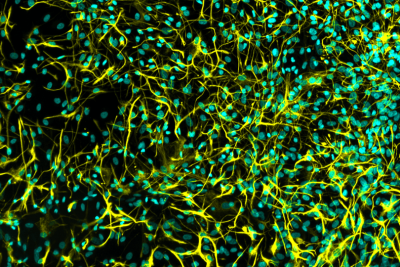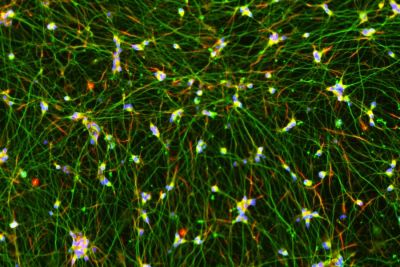Quick-Glia™ Astrocytes - Human iPSC-derived Astrocytes (Autism Spectrum Disorder)
Cryopreserved human iPSC-derived astrocytes from Autism Spectrum Disorder patient
AS-SeV-AU
As low as
$1,999.00
Our proprietary transcription factor-based stem cell differentiation method produces highly pure populations of astrocytes without a genetic footprint. Quick-Glia™ Astrocytes - Human iPSC-derived Astrocytes display typical astrocyte morphology and markers such as S100 Calcium Binding Protein β (S100β), Chondroitin Sulfate Proteoglycan 8 (CD44), Aldehyde Dehydrogenase 1 Family Member L1 (ALDH1L1), and mature astrocyte marker Glial Fibrillary Acidic Protein (GFAP). When handled and maintained according to the instructions in this user guide, astrocytes are viable long-term and are suitable for a variety of characterization and neurotoxicity assays.
| Short Description | Cryopreserved human iPSC-derived astrocytes from Autism Spectrum Disorder patient |
|---|---|
| Product Components | Cryopreserved cells and Component P |
| Starting Material | iPSCs derived from peripheral blood mononuclear cells |
| Product Use | This product is for research use only. It is not approved for use in humans or for therapeutic or diagnostic use. |
| Storage Conditions | Frozen cells should be stored in liquid (vapor phase). The rest of the components should be stored at -20°C. |
| Cell Type | Astrocytes |
| Culture Type | Feeder Cell-Free |
| Disease | Autism Spectrum Disorder |
| Donor Sex | Female, Male |
| Donor Race Ethnicity | Asian, Caucasian, not Latino |
| Patient History | See Resources section for more information. |
| Reprogramming Method | Episomal vector |
| Induction Method | Transcription factors delivered by Sendai virus |
| Growth Properties | Adherent |
| Shipping Conditions | Dry ice (domestic) or liquid nitrogen (international) |
| Shelf Life | 1 year |



